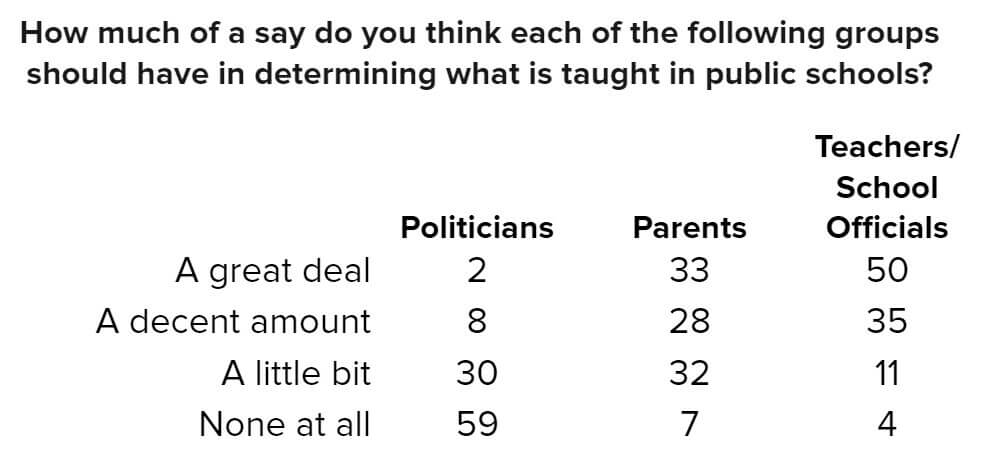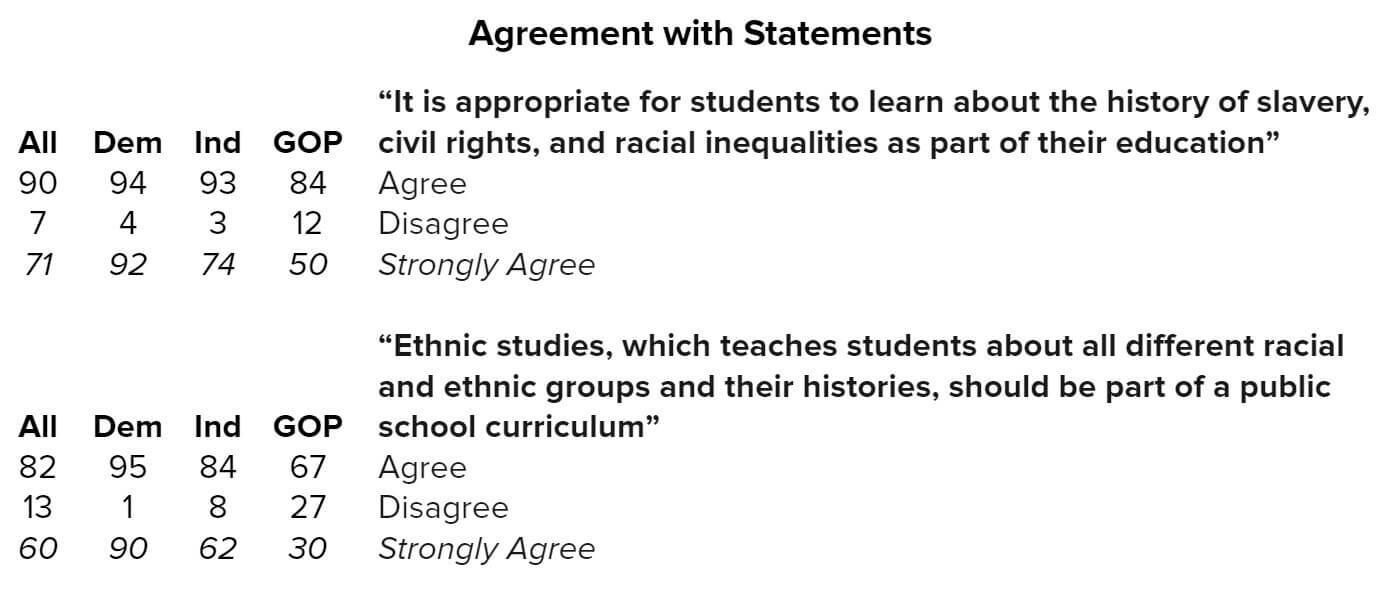American public education has faced several unique challenges in recent years, from dealing with the COVID-19 pandemic to politically motivated debates about the way history is taught and the role of parents in the classroom. To understand how this debate is playing out, and how to respond to debates being instigated by some politicians, Change Research conducted a poll of 1,208 voters. The following summarizes the key findings:
1. Voters want teachers, school officials, and parents to have the say on what is taught in public schools, not politicians.
A solid majority (59%) want politicians out of these decisions completely. This belief unites Democrats (65%), Independents (65%), and Republicans (51%). On the other hand, 85% believe that teachers and other school officials should have a large say in what is taught and 61% feel similarly about the role of parents.

2. Debating whether or not parents should have a role in their children’s education is a false choice being set up by extremist politicians to divide parents and teachers. Avoid this trap.
We tested the following statement that sets up this teachers vs. parents divide:
“Some people believe that parents should have a great deal of control over what is taught in their children’s classrooms. Others say that if all 25 sets of parents in a classroom could give teachers different instructions about what to teach, it would introduce chaos, and believe that decisions about curriculum should mostly be made by schools and teachers. Do you agree or disagree that parents should be able to control what is and is not taught in their children’s classrooms?”
Overall, 50% agree with this statement while 47% disagree. This statement completely polarizes the electorate. Democrats disagree by a wide margin (16% agree, 80% disagree) while a slight majority of Independents disagree (43% agree, 52% disagree). Republicans overwhelmingly agree (85% agree, 12% disagree). Candidates and advocates need to shift the debate away from this false dichotomy.
3. Nearly everyone supports the teaching of history, including slavery, and the stories of everyone in America.
90% agree that “it is appropriate for students to learn about the history of slavery, civil rights, and racial inequalities as part of their education” and 82% agree that “ethnic studies, which teaches students about all different racial and ethnic groups and their histories, should be part of a public school curriculum.”
Strong majorities of Democrats, independents, and Republicans agree with these statements. Extremist politicians seeking to ban these topics reside along the fringe of American politics. Their voices do not reflect the vast majority who believe these topics are an important part of a quality education in the 21st century.

4. Voters oppose book bans and see the rise of politicians advocating for books bans as a serious problem in America.
Overall, 71% agree that “the rise in politicians banning books from schools is a serious problem in this country” while just 24% disagree. Nearly every Democrat agrees with this (93% agree, 4% disagree) as does a solid majority of Independents (77% agree, 16% disagree). While Republicans split on this question, a near majority concur with the rest of the electorate (47% agree, 46% disagree).
A majority reject the idea that “schools indoctrinating students with a liberal, woke agenda is a serious problem in my area” (39% agree, 50% disagree). The effective response to them is simple – teachers are not the enemy.
In conclusion, candidates and advocates must center the role of teachers and parents in determining what is best for their children in their school as opposed to politicians.
When people try to divide parents and teachers, call it out, and focus on what actually makes for good schools. Teachers, parents, and students can be left alone to figure out what works for their school and their classroom. They don’t want extremists dictating lesson plans, writing course catalogs, or telling us what all of us can and cannot read.
